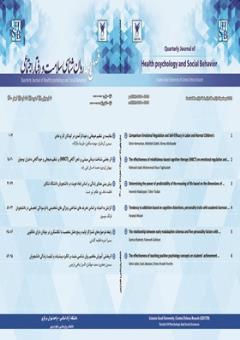A comparative study of executive laws related to educational support for exceptional children and adolescents in Iran and the international organization UNICEF
Subject Areas : Psychology
Abdulrahim Tajuddin
1
![]() ,
Mansure Shahriari Ahmadi
2
*
,
Gholamali Afrooz
3
,
Hasan Pasha sharifi
4
,
Mansure Shahriari Ahmadi
2
*
,
Gholamali Afrooz
3
,
Hasan Pasha sharifi
4
1 - PhD student in Psychology, Department of Psychology of Exceptional Children, Central Tehran Azad University, Tehran, Iran
2 - Assistant Professor, Department of Psychology of Exceptional Children, Central Tehran Branch, Islamic Azad University, Tehran, Iran
3 - Professor, Department of Psychology of Exceptional Children, Central Tehran Branch, Islamic Azad University, Tehran, Iran
4 - Associate Professor, Department of Psychology of Exceptional Children, Central Tehran Branch, Islamic Azad University, Tehran, Iran
Keywords: Exceptional Children, Executive Laws, Educational Support,
Abstract :
The purpose of this study was to compare the executive laws related to educational support for exceptional children and adolescents in Iran and the international organization UNICEF. The research method was qualitative and comparative. The research sample included the documents and annual reports available in the welfare organization from 2010 to 2019, which were selected through available and targeted sampling, and in the international dimension, UNICEF's annual reports on educational support for exceptional children and adolescents in 2011. Reviewed by 2020. Some quantitative research data were analyzed using descriptive methods and content analysis was done in the document matching section. According to the findings, the number of exceptional children and teenagers who are covered by welfare has been increasing in recent years. The coefficient of correlation between the opinion of the families of exceptional children and adolescents and the welfare officials about the quantity and quality of educational support showed that the opinion of the families and the officials are aligned. According to the research conducted by UNICEF in 51 developing countries, 42% of girls and 51% of boys of exceptional and disabled children (average about 47%) managed to go to primary school, while in Iran this average reaches 62.5%. Therefore, it can be concluded that education support in Iran is in a better situation than the UNICEF reports of developing countries.

